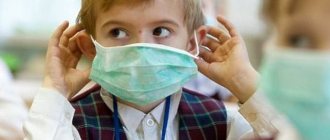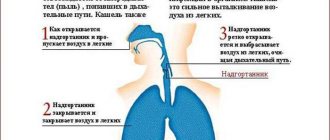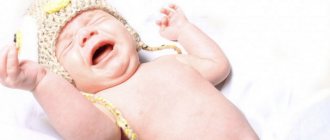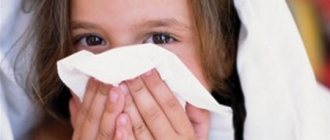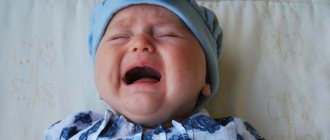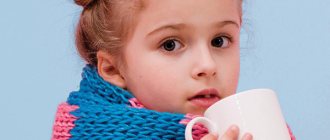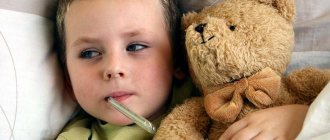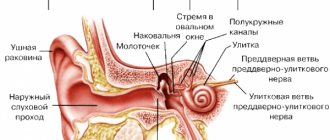Causes
Acute laryngitis in children is a disease that occurs due to exposure to various factors. Traditional reasons for the progression of characteristic symptoms are:
- Infectious lesion of the body. Of particular danger is diphtheria, which leads to acute obstructive bacterial laryngitis with severe respiratory distress in the patient.
- Sharp fluctuations in the temperature of inhaled air. A change in the influence on the mucous membrane of the larynx leads to its irritation with the progression of edema and the clinical picture of the disease.
- Overstrain of the vocal cords. Such laryngitis in a child can develop during prolonged screaming, singing or loud talking against a background of dusty air.
Additional provoking factors remain the individual characteristics of the baby’s body and susceptibility to the negative effects of infectious pathogens.
Laryngitis causes difficulty breathing in children due to the structure of their larynx. The mucous membrane swells easily, which, given the small diameter of the corresponding structure, quickly leads to stenosis.
Additionally, there is an increase in the functioning of the mucous glands. The secretion acts as a physical barrier to the passage of air. This is especially true for children in the early years of life. Lack of timely treatment is fraught with a significant deterioration in the patient’s well-being.
Traditional methods
Traditional medicine does not deny the effectiveness of traditional medicine recipes based on natural ingredients as an addition to the main treatment to speed up the healing process.
But before using any folk remedy, it is recommended to consult an otolaryngologist.
Cocktails based on milk and honey
Alkaline mineral water and warm milk are combined in equal proportions in 1 glass, 1 tablespoon of honey is added to the ingredients. The freshly prepared product is drunk in one dose.
READ ALSO: Medicinal properties of badger fat - use for coughs and contraindications for children
Another preparation option is to use warm milk with the addition of honey and dissolved butter to soften the throat, ease breathing and expel phlegm.
Important! Recipes should be used with caution if the child is allergic to honey.
Inhalations with eucalyptus
For half a pan of boiled water you need to take 10 tablespoons of dry eucalyptus herb. It is recommended to place the container near the child’s sleeping place so that the baby can breathe in the vapors of the healing decoction.
The product has a high bactericidal effect.
Inhalations with cloves
Pour hot water into a container and add 6-7 drops of clove oil to the liquid.
The baby should breathe in the steam released from the decoction.
Potato inhalations
Potatoes in their skins are boiled and placed on a leaf of mint, eucalyptus or chamomile.
The baby breathes over the steam for 10 minutes.
When performing inhalations, the baby should be 20-30 cm from the container with the medication.
The child's head can be covered with a towel to prevent the healing steam from spreading throughout the room.
Gargling
Crushed oak bark, sage grass and cinquefoil roots are mixed in the same proportion - 3 tablespoons each with 1 tablespoon of fennel fruit.
Pour 1 liter of boiling water into a thermos and add 3 tablespoons of the resulting medicinal mixture.
Infuse the broth for 4 hours, then cool and strain thoroughly. The gargle for children is ready.
Rinsing 3 times a day with boiled beet juice will have a positive effect; during this process, it is recommended to take 1 sip of vegetable juice.
To perform the procedure, an effective remedy is widely used, prepared by mixing and boiling 1 cup of boiled water and 1 teaspoon of honey for 1 minute.
Gargling helps relieve inflammation and promotes mucus separation.
Infusion
Calendula flowers, St. John's wort, birch buds, dry yarrow and thyme herbs, coltsfoot and blueberry leaves are combined in equal proportions.
Pour 1 glass of boiled water into a thermos, add 1 tablespoon of the mixture and leave to brew for 3-4 hours, filter, cool and give a quarter glass to children 3 times a day after meals.
The product is suitable for acute disease.
To get rid of allergic laryngitis, a decoction of 10 grams of oregano flowers and herbs added to 200 ml of water will help.
The medicine is taken 3 times a day, a quarter glass.
Nasal drops
In addition to using folk remedies, it is recommended to instill 1 dropper of vegetable oil into the child. The child should remain in a supine position for several minutes.
After assuming a vertical position, the oil flows down the back wall of the nasopharynx, reaching the mucous membrane affected by inflammation.
The product is effective for difficulty breathing during acute laryngitis, helps relieve irritation of the mucous membrane and speeds up the healing process.
Apply up to 3 times per day.
Cabbage leaves
Thoroughly washed cabbage leaves are boiled in water until completely softened.
The child should eat vegetable leaves up to 3 times a day, washed down with cabbage broth.
This remedy will help you quickly get rid of a sore throat.
Decoction
During a severe cough, the child is given the following decoction: dissolve 1 tablespoon of pine buds in 1 glass of boiled water, wrap in a towel and let stand for 30-40 minutes. Take 2 sips of the product when coughing occurs.
Carrot decoction helps with hoarseness. The vegetable is grated and added to 0.5 liters of milk, everything is boiled over low heat for several minutes and filtered. Use the decoction 3-4 times a day.
At home, compresses applied to the child’s neck area, foot baths and mustard plasters on the back are also useful.
It is useful to finely chop garlic cloves and place them on saucers throughout the house. It’s great if the baby agrees to eat a garlic clove.
Classification
Laryngitis is a disease that manifests itself differently in children. Depending on the form of the pathology, the following types are distinguished:
- Catarrhal. The disease is mild, without symptoms of airway obstruction. Inflammation of the mucous membrane is observed against the background of general symptoms of intoxication. Read more about catarrhal laryngitis→
- Stenosing or acute obstructive laryngitis. The disease is accompanied by a decrease in the lumen of the larynx with the progression of suffocation, which most often occurs in children under 2-5 years of age.
- Hypertrophic. In addition to the usual symptoms, there is a pronounced increase in the volume of the mucous membrane. Read more about hypertrophic laryngitis→
- Atrophic. Laryngitis is accompanied by thinning of the mucous membrane. Typical for adult patients.
- Hemorrhagic. A severe form of acute obstructive laryngitis, which occurs against the background of severe bacterial invasion with the appearance of hemorrhages on the mucous membrane of the larynx.
Types of disease
There are two forms of pathology:
- Chronic. It manifests itself as itching and tickling, a change in voice and a persistent desire to cough.
- Spicy. There is swelling of the throat and vocal cords and hyperemia of the mucous membrane.
Types of laryngitis include:
- catarrhal – the most common and harmless type of disease;
- hemorrhagic , characterized by hemorrhages in the ligaments of the larynx and mucous membrane, caused by disorders of the hematopoietic system, disruptions in the functioning of the liver and cardiovascular system, toxic flu;
- hypertrophic , with proliferation of the mucous membrane, hyperplasia;
- laryngotracheitis , characterized by inflammatory damage to the trachea;
- diphtheria - when the infection passes from the tonsils to the larynx;
- phlegmonous is the rarest type, involving the involvement of lymph nodes in the pathological process, damage to muscle ligaments, the mucous layer of the larynx and perichondrium due to severe infectious diseases and decreased immunity of the child.
Do you know the proportions to bring down a child’s fever with vinegar and water? They are written about in the current article.
What does propolis tincture with alcohol help with is written on this page.
Symptoms
Laryngitis affects the mucous membrane of the larynx. The progression of symptoms is directly related to the localization of the pathological process.
Typical signs of laryngitis in children:
- Dry barking cough.
- Hoarseness of voice.
- Difficulty breathing.
Auxiliary symptoms are:
- Increased body temperature.
- Dry mouth.
- Pain when swallowing.
- General weakness.
- Sleep rhythm disturbance.
- Wheezing.
When visually assessing the condition of the throat, you can see redness and swelling of the mucous membrane.
First aid
First aid for acute obstructive laryngitis in children under 10 years of age is aimed at quickly stabilizing the patient’s breathing. If a strong barking cough occurs, which is accompanied by a whistling sound in the chest and the child’s condition worsens, you need to call an ambulance.
Algorithm of actions for parents before doctors arrive:
- Placing the child in a cool room. The optimal temperature is 18 oC.
- Air humidification. Doctors recommend increasing the corresponding figure to 70%.
- Eliminates stress on the vocal cords. The child needs to be calmed down and crying eliminated.
For emergency help, you can bring your baby into the bathroom and turn on cold water. An alternative is to take a walk in the fresh air. With an adequate reaction from the parents and calm adherence to the indicated points, appropriate non-drug treatment ensures an improvement in the child’s well-being even before the doctors arrive.
When you urgently need to call an ambulance
Emergency hospitalization and urgent measures are necessary for the following signs, which all parents should know:
- Significant narrowing of the lumen of the larynx is false croup, often found in children under 1 year of age. The condition can lead to difficulty and stopping breathing.
- Breathing disorders - shortness of breath, intermittent uneven breathing. In these cases, many children do not experience behavioral problems, but the likelihood of asphyxia and cardiovascular failure remains.
- Lack of air when coughing, which may be accompanied by fear in the child.
- High temperature for more than 1 day.
READ ALSO: Frontal sinusitis: symptoms and treatment of the disease at home
Which doctor treats acute laryngitis in children?
Treatment of acute obstructive laryngitis in young children is the responsibility of a pediatrician, with the possibility of consultation with an otolaryngologist.
In most cases, the child can be helped quickly with adequate therapy. Severe laryngitis with a risk of suffocation requires emergency hospitalization of the patient in the intensive care unit to provide the necessary emergency care. After stabilization of the patient's condition, the patient is discharged or transferred to inpatient treatment. It all depends on the root cause of the disease.
Diagnostics
Diagnosis of a disease is a responsible process that largely determines the correct selection of appropriate therapy. To determine the presence of a specific disease, the doctor uses the following methods and procedures:
- Examination of the patient.
- Analysis of complaints and anamnesis.
- Auscultation of the lungs to exclude damage to the lower respiratory tract.
- Examination of the pharynx and, if an endoscope is available, the larynx.
- Clinical blood test.
If necessary, the child may be referred for an X-ray examination of the chest organs for differential diagnosis with pneumonia or consultation with related specialists, depending on the symptoms of the problem.
Treatment
Treatment of acute laryngitis in children involves the integrated use of three basic approaches to therapy:
- Mode.
- Drug intervention.
- Physiotherapeutic procedures.
Depending on the age of the child, treatment may vary.
Up to a year
Therapy for children under one year of age involves maximum limitation of various irritants. The child should cry and scream minimally. Parents monitor his feeding and regular diaper changes to prevent unnecessary irritation.
Cool and moist air in the room is required, which helps reduce swelling. Among the medications used in infants, antihistamines are used to combat swelling. Representatives: Suprastin, Diazolin, Tavegil.
If the temperature rises, additionally use ibuprofen or paracetamol. Other groups of medications should be used with caution in young children and only after consulting a doctor.
After a year
In children over two years old, acute laryngitis can be treated with the additional inclusion of expectorants - Alteyka, Lazolvan and a variety of lozenges to relieve throat discomfort - Strepsils, Doctor Mom and the like.
Effective physiotherapeutic procedures:
- Inhalations.
- Electrophoresis.
- UHF.
The selection of therapy is carried out by a doctor.
Treatment methods at home
To eliminate a disease associated with inflammation of the larynx, an integrated approach is required, which includes effective methods of traditional and traditional medicine, as well as the creation of certain conditions at home for a speedy recovery of the child.
General recommendations
To alleviate the baby’s condition, the following activities are carried out at home:
- Reducing loads on the ligamentous apparatus. The child should talk less. Remember that children's ligaments are not fully formed; increased stress can lead to irreparable vocal defects.
- The baby needs to be provided with bed rest.
- Increased fluid intake. To reduce intoxication of the body and relieve cough, it is recommended to drink unsweetened drinks at a warm temperature - Borjomi water, herbal infusions, fruit drinks, milk.
- Increased air humidity. The room where the baby is located should be regularly ventilated, place containers with liquid in the room, hang wet laundry or use a spray bottle.
- Proper nutrition. The child should not eat irritating foods; the food should be dietary, with increased intake of vitamins and nutrients into the body. Carbonated drinks should be excluded from your diet. The food consumed should be at a warm temperature.
At the recovery stage, walks with the child are recommended, which should begin with 15-20 minutes away from the roads, reliably protecting the baby from hypothermia.
Important! In case of acute inflammation of the larynx, walking is undesirable.
You should not go out for a walk with your child in slush, extreme cold or extreme heat with accumulation of dust.
This can negatively affect the child's well-being.
At high body temperatures, the use of mustard plasters and foot baths is contraindicated.
Prevention
Prevention of laryngitis involves limiting the influence of negative factors. For prevention you need:
- Regularly ventilate the room where the child sleeps.
- Humidify the air.
- Carry out nonspecific prevention of ARVI.
- See a doctor promptly.
Acute laryngitis that progresses in children can look very scary for parents. However, if you understand the cause of the disease, coping with it is not difficult. The main thing is to see a doctor on time.
Author: Denis Volynsky, doctor, especially for Moylor.ru

